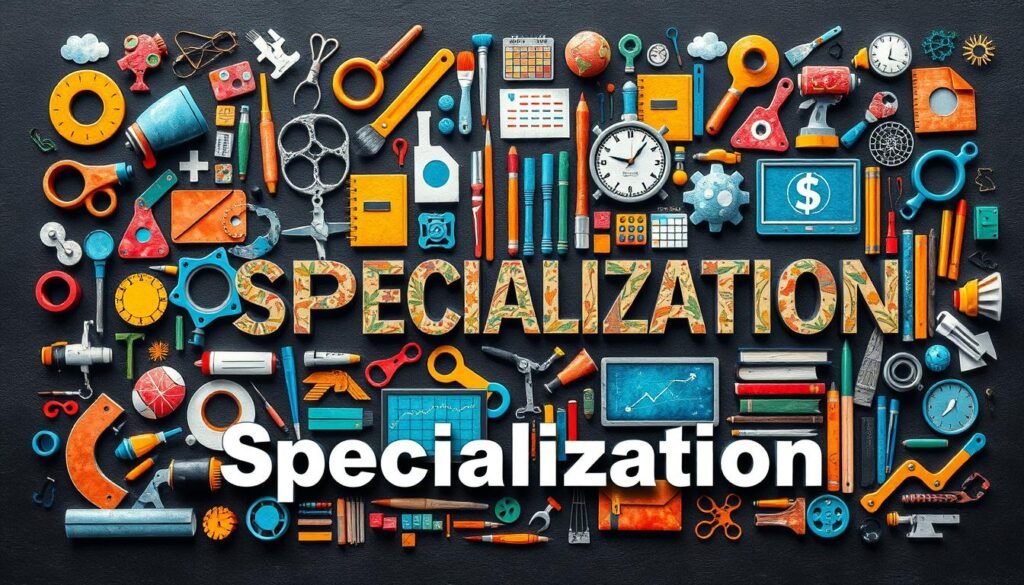Completing your master’s degree is a significant accomplishment, but it is just the beginning of your professional journey. In today’s fast-paced and constantly evolving business landscape, staying relevant and continuing to learn is essential for long-term career success. What steps can you take to ensure that your knowledge and skills remain competitive in your field? This article will explore the importance of continuous learning after obtaining a master’s degree and provide strategies to help you stay ahead of the curve.
Key Takeaways
- Pursuing internships and gaining practical experience can enhance your career readiness and job prospects after completing your master’s program.
- Continuously updating your skills and knowledge is crucial for maintaining a competitive edge in the job market.
- Engaging in professional networking and attending industry events can open doors to new opportunities and keep you informed about the latest trends.
- Developing a growth mindset and a commitment to lifelong learning can help you adapt to changes in your industry and remain relevant.
- Leveraging online learning resources and seeking feedback from mentors can support your ongoing professional development.
The Importance of Continuous Learning
In today’s rapidly evolving business landscape, the ability to continuously adapt and learn has become a critical asset for career advancement and long-term success. As industries undergo constant change driven by emerging technologies, shifting consumer preferences, and global market forces, professionals must adopt a growth mindset to stay relevant and competitive.
Embracing continuous learning allows you to not only keep pace with industry trends but also develop the adaptability needed to thrive in an ever-changing environment. By consistently expanding your knowledge and skill set, you position yourself for career advancement and ensure that you remain a valuable asset to your organization.
Rapidly Evolving Business Landscape
The pace of change in the modern business world is staggering. New technologies, emerging markets, and shifting consumer demands can disrupt industries overnight, rendering once-essential skills and knowledge obsolete. To stay ahead of the curve, you must be willing to continuously learn and adapt, acquiring new competencies that align with the evolving needs of your field.
Embracing a Growth Mindset
Cultivating a growth mindset is key to unlocking the full benefits of lifelong learning. Rather than viewing your abilities as fixed, a growth mindset encourages you to see challenges as opportunities for improvement and development. By approaching your professional journey with this mindset, you can embrace the inherent value of continuous learning and position yourself for long-term success.
Benefits of Continuous Learning
Continuous learning offers a wealth of benefits for professionals seeking to stay ahead in today’s rapidly evolving business landscape. By consistently expanding your knowledge and skill set, you can position yourself as a valuable asset, able to adapt and contribute to organizational success.
Staying Updated with Industry Trends
In an era of constant change, keeping pace with the latest industry trends is crucial for maintaining a competitive edge. Engaging in continuous learning allows you to stay informed about emerging technologies, shifting market dynamics, and best practices within your field. This knowledge can help you anticipate and respond to changes proactively, ensuring your skills remain relevant and in-demand.
Expanding Your Skill Set
Continuous learning is the key to professional development and career advancement. By continuously acquiring new skills and capabilities, you can diversify your portfolio, making yourself a more versatile and sought-after candidate. Whether it’s mastering a new software program, honing your leadership abilities, or delving into a specialized domain, expanding your skill set can open up exciting new opportunities for career advancement and competitive edge.

Building a Learning Culture
Fostering a learning culture is essential for staying motivated and engaged in continuous learning. This involves embracing a growth mindset, setting specific learning goals, and diversifying your learning resources beyond traditional courses.
Embracing a Growth Mindset
Adopting a growth mindset means viewing challenges as opportunities for professional development, rather than as obstacles to be avoided. This attitude can help you stay open to new ideas and actively seek out learning resources to enhance your skills and knowledge.
Setting Learning Goals
Establishing clear learning goals can provide structure and direction to your continuous learning efforts. Consider setting specific, measurable, and time-bound objectives that align with your career aspirations and the evolving demands of your industry.
Diversifying Learning Sources
Expand your learning resources beyond traditional classroom settings. Explore industry publications, online courses, webinars, and networking events to gain a well-rounded understanding of your field and stay ahead of the curve. This diverse approach can help you develop a learning culture that fosters ongoing growth and adaptability.
The Value of Specialization
As industries evolve, developing specialized skills can provide a significant competitive edge. By honing your expertise in specific areas, you can position yourself as a subject matter expert and demonstrate your commitment to continuous learning. Specialization not only enhances your marketability but also opens doors to new career advancement opportunities.
In-Demand Skills and Certifications
Identifying and acquiring in-demand skills is a crucial step in strengthening your specialization. Research industry trends, analyze job postings, and proactively seek out opportunities to develop skills that are highly sought after. Complementing your expertise with relevant certifications can further bolster your credibility and set you apart from the competition.
Investing in your specialization through targeted skill development and certifications can have a profound impact on your career trajectory. Employers value individuals who possess specialized knowledge and the ability to contribute unique insights to their organizations. By cultivating your specialization, you can unlock new avenues for career advancement and position yourself as a valuable asset in the ever-evolving business landscape.

Bridging the Skills Gap
In today’s rapidly evolving job market, the skills gap, the discrepancy between the skills employers need and the skills candidates possess, has become a persistent challenge. To stay competitive in your career development, it’s crucial to identify high-demand skills within your industry and collaborate with industry experts to stay informed about emerging trends and requirements.
Identifying High-Demand Skills
Keeping a pulse on the in-demand skills in your field is essential for bridging the skills gap. Research industry publications, attend professional networking events, and connect with mentors to understand the specific skills that are in high demand. This knowledge will allow you to strategically plan your career development and upskilling efforts.
Collaborating with Industry Experts
Leveraging your professional network and seeking out industry experts can provide valuable insights into the evolving skills landscape. Collaborate with experienced professionals, join industry associations, and participate in skill-building workshops to stay updated on the latest trends and requirements. This level of industry collaboration can help you anticipate and adapt to the changing needs of employers.
By identifying high-demand skills and collaborating with industry experts, you can take proactive steps to bridge the skills gap and position yourself as a valuable asset in the job market. Continuous learning and adaptability are key to your long-term career development and success.
importance of internships for post-master’s job searches
Embarking on your post-master’s job search can be an exciting yet daunting endeavor. One valuable asset you can leverage is the power of internships. Internships can play a crucial role in your career development by providing industry exposure, hands-on experience, and the opportunity to build professional networks.
Even after completing your master’s degree, engaging in internships can help you develop specialized skills, gain practical insights, and demonstrate your commitment to continuous learning to potential employers. Internships offer a unique chance to immerse yourself in your desired field, gaining a deeper understanding of industry trends and best practices.

Moreover, internships can be instrumental in bridging the gap between your academic knowledge and real-world application. By collaborating with industry experts, you can acquire practical skills and insights that are highly valued by employers. This hands-on experience can set you apart from other job seekers and showcase your readiness to contribute to an organization’s success.
Beyond skill development, internships also provide an invaluable opportunity to expand your professional network. By engaging with professionals in your field, you can build lasting connections, learn about industry trends, and potentially uncover hidden job opportunities. This networking aspect can be a powerful tool in your post-master’s job search, as it allows you to connect with potential employers and stay informed about the latest industry developments.
Embracing internships, even after your master’s program, demonstrates your dedication to continuous learning and your willingness to go the extra mile to enhance your career prospects. Leveraging these opportunities can be a game-changer in your post-master’s job search, helping you unlock new possibilities and position yourself as a valuable asset to potential employers.
Employer Expectations
In today’s rapidly evolving business landscape, employers are seeking professionals who possess a unique blend of attributes. They highly value individuals who demonstrate adaptability, a commitment to continuous learning, and the ability to contribute meaningfully to the organization’s success. By showcasing your willingness to stay updated on industry trends, acquire new skills, and apply your knowledge to drive organizational outcomes, you can position yourself as a highly sought-after asset with promising opportunities for career advancement.
Adaptability and Continuous Learning
Employers recognize that the world of work is constantly changing, and they prioritize candidates who can adapt to these changes with ease. Demonstrating a growth mindset and a genuine enthusiasm for continuous learning signals to employers that you are not only capable of keeping up with the latest industry developments but also eager to expand your skill set and take on new challenges. This adaptability and commitment to self-improvement can be a significant advantage in securing your desired role and achieving long-term success.
Contribution to Organizational Success
Beyond just possessing technical expertise, employers value professionals who can contribute to the overall success of the organization. By aligning your knowledge, skills, and experiences with the company’s strategic objectives, you can showcase your ability to drive meaningful impact and add tangible value to the organization. Employers seek individuals who are not only knowledgeable but also capable of translating their capabilities into measurable outcomes that contribute to the organization’s growth and competitiveness.
Upskilling as a Continuous Journey
Your education and development should not end with your master’s degree. To remain relevant and adaptable in today’s rapidly evolving business landscape, you must embrace a mindset of continuous learning and upskilling. This is a lifelong journey that requires strategic planning, active engagement, and a willingness to seek feedback and mentorship.
Setting Goals and Creating a Learning Plan
Begin by reflecting on your current skills and knowledge gaps. What areas do you need to strengthen or expand to achieve your career aspirations? Set specific, measurable, and time-bound learning goals that align with your professional development objectives. Then, create a structured learning plan that incorporates a diverse range of activities, such as online courses, workshops, industry conferences, and hands-on projects. Regularly review and adjust your plan to ensure it remains relevant and effective.
Seeking Feedback and Mentorship
As you embark on your continuous learning journey, seek out feedback from colleagues, managers, and industry experts. Their insights can help you identify areas for improvement and guide you towards more effective learning strategies. Additionally, consider finding a mentor who can provide personalized guidance, share their experiences, and offer valuable advice to support your upskilling efforts.
By viewing upskilling as an ongoing process, setting clear learning goals, and proactively seeking feedback and mentorship, you can ensure that your continuous learning efforts contribute to your long-term professional development and keep you ahead of the curve in your industry.
Online Learning Resources
In today’s rapidly evolving business landscape, continuous learning has become essential for staying relevant and competitive. The rise of online learning platforms has made it easier than ever to access a wide range of educational resources, from industry-specific courses to certification programs. Leveraging these online learning opportunities can help you acquire new skills, stay updated on industry trends, and enhance your professional development, all while balancing work and personal responsibilities.
From interactive video lectures to self-paced modules, online continuous education platforms offer a diverse array of skill development options. Whether you’re looking to enhance your technical abilities, expand your management expertise, or pursue a specialized certification program, the digital landscape provides a wealth of opportunities to upskill and stay ahead of the curve.
By embracing online learning, you can tailor your educational journey to your unique needs and preferences. Explore industry-leading course providers, virtual workshops, and interactive webinars to discover the resources that best align with your career aspirations and learning style. Invest in your professional growth and unlock new possibilities for advancement and fulfillment.
Networking and Collaboration
Expanding your professional network and engaging in collaborative opportunities can be invaluable for your continuous learning journey. Attending industry events, conferences, and workshops not only exposes you to new ideas but also connects you with industry experts, opening doors to new learning and growth opportunities.
Attending Industry Events
Industry events, such as conferences, trade shows, and networking sessions, provide a platform to learn about the latest trends, best practices, and innovations in your field. By actively participating in these events, you can gain insights from seasoned professionals, discover new career paths, and build meaningful connections with your peers.
Joining Professional Associations
Joining relevant professional associations can also be a powerful way to enhance your career development. These organizations often offer educational resources, mentorship programs, and opportunities to collaborate with like-minded individuals. By actively engaging with a professional association, you can stay up-to-date with industry developments, expand your skill set, and potentially access new job opportunities.
Whether you’re attending industry events or becoming a member of a professional association, these networking and collaborative activities can serve as valuable avenues for your continuous learning and career growth.
Reading Habits and Thought Leadership
Cultivating reading habits and staying informed about thought leadership in your industry can be a powerful tool for continuous learning. By regularly reading industry-related publications, articles, and research, you can stay updated on the latest trends, emerging technologies, and innovative practices. This knowledge can inform your decision-making and contribute to your professional development, helping you advance your career.
Reading industry-leading publications and following thought leaders in your field can provide valuable insights into the challenges and opportunities facing your industry. This awareness can help you anticipate changes, adapt to evolving industry trends, and position yourself as a subject matter expert. By integrating this knowledge into your work, you can demonstrate your commitment to continuous learning and your ability to contribute to your organization’s success.
Engaging with thought leadership content can also inspire new ideas and challenge your existing assumptions. This cross-pollination of perspectives can spark innovation and help you develop a more nuanced understanding of your industry. By fostering a habit of reading and staying informed, you can cultivate a growth mindset that will serve you well throughout your career.
Reflection and Application
Continuous learning is not just about acquiring new knowledge; it’s also about reflecting on your experiences and applying what you’ve learned to real-world scenarios. By regularly reflecting on your learning journey and actively practicing new skills, you can deepen your understanding, enhance your problem-solving abilities, and position yourself as a versatile and adaptable professional.
Take time to assess your progress and identify areas where you can further develop your skill set. Reflect on how the knowledge and techniques you’ve gained through continuous learning have impacted your approach to challenges and decision-making. Apply these insights to refine your strategies and continuously improve your performance.

Continuous learning is a cyclical process of gaining knowledge, applying it, and then reflecting on the outcomes. By embracing this cycle, you’ll not only stay up-to-date with industry trends but also become a more effective and adaptable professional. Regularly engage in self-evaluation and consider how you can apply your newfound skills and insights to benefit your career and contribute to your organization’s success.
Balancing Work and Learning
Maintaining a healthy balance between your work responsibilities and continuous learning efforts can be a challenge. However, by exploring flexible learning schedules, you can optimize your time and ensure that your professional development remains a priority, even with a demanding work schedule.
Flexible Learning Schedules
Online courses and self-paced programs offer the flexibility you need to fit your learning into your busy work-life. By taking advantage of these flexible learning options, you can work towards your professional goals without sacrificing your productivity or work-life balance. This approach allows you to manage your time effectively, learn at your own pace, and integrate continuous learning seamlessly into your daily routine.
Furthermore, many organizations now offer continuous learning opportunities, such as in-house training programs or tuition reimbursement, which can help you balance your work and learning commitments. By taking advantage of these resources, you can demonstrate your commitment to professional development and enhance your value to your employer.
Conclusion
In the ever-evolving business landscape, continuous learning is essential for professionals who seek to stay relevant, adaptable, and competitive in their careers. By embracing a growth mindset, acquiring specialized skills, and leveraging a range of learning resources, you can position yourself for long-term success and remain a valuable asset to your organization. Continuous learning is not just a one-time event but a lifelong journey that can open new doors and propel your career forward.
Maintaining a commitment to continuous learning will not only enhance your career advancement opportunities but also provide you with a unique competitive edge in the job market. Your ability to adapt and stay ahead of industry trends will make you an indispensable asset to your employer, ensuring your long-term adaptability and success. Embrace the philosophy of lifelong learning and embark on a journey of self-improvement and professional growth.
As you navigate the ever-changing landscape of your career, remember that continuous learning is not a burden but a powerful tool to unlock your full potential. Embrace the opportunities, challenge yourself, and witness the remarkable impact that a commitment to learning can have on your professional trajectory and personal fulfillment.
Source Links
- 5 Benefits of Continuing Education for Career Advancement – https://online.uc.edu/blog/5-benefits-of-continuing-education-for-career-advancement/
- MBA: Continuous Learning for Staying Relevant After Your Degree – https://www.regenesys.net/reginsights/continuous-learning-staying-relevant-after-your-mba
- The Importance Of Upskilling And Continuous Learning In 2023 – https://www.forbes.com/sites/karadennison/2023/04/13/the-importance-of-upskilling-and-continuous-learning-in-2023/


